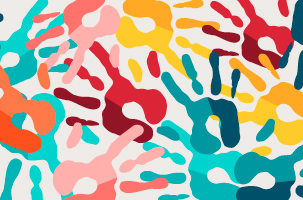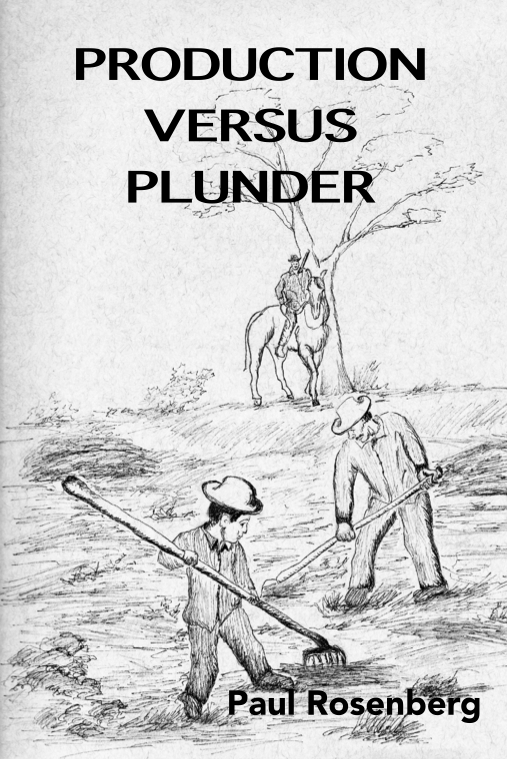 Paul Rosenberg - Freeman**Q**s Perspective
Paul Rosenberg - Freeman**Q**s Perspective
IPFS
Culture Versus Conscience
Written by Paul Rosenberg Subject: Philosophy of Liberty Culture has always been the antagonist of conscience.
Culture has always been the antagonist of conscience.
Once we see ourselves as part of a larger entity – once we identify with it – we feel a necessity to conform to it. If we don't, we begin to lose the existential crutch that larger entities offer us. And, partly as a result of living with that collective identification, most of us are emotionally unprepared to stand alone before the world.
You'll notice, however, that more or less all our big steps forward have come from people who stepped out alone. Here's just a brief listing of such people:
Abraham
Moses
Diogenes
Pythagoras
Sappho
Buddha
Jesus
Confucius
Peter Abelard
Thomas Paine
Cultures form naturally among people of similar opinions, but as they grow and continue, those opinions come to be treated as entities of themselves, which is how cultures turn to the dark side.
If we share ideas because we are individually persuaded that they are true, based upon concrete facts, we have a shared culture that does not restrict conscience.
If, however, we begin to see those who deviate from our ideas as opponents (casting our ideas as insulted entities), our culture has become a jealous god: Those who are in are great; those who are out are not; those who exit are traitors. Thus culture becomes the enemy of conscience, and thus the enemy of human progress and of human life.
The stronger the culture… the tighter the web of expectations it spins around us… the more it becomes the enemy of what is good and transcendent in us.
You can see a gut-level rage against this in George Carlin's book, Brain Droppings:
No matter how you care to define it, I do not identify with the local group. Planet, species, race, nation, state, religion, party, union, club, association, neighborhood, improvement committee; I have no interest in any of it. I love and treasure individuals as I meet them, I loathe and despise the groups they identify with and belong to.
You can see it in a more philosophical form in Simone Weil's The Great Beast:
Conscience is deceived by the social.
You can see if from psychology, as in this passage from Victor Frankl:
Because of social pressure, individualism is rejected by most people in favor of conformity. Thus the individual relies mainly upon the actions of others and neglects the meaning of his own personal life. Hence he sees his own life as meaningless and falls into the "existential vacuum"…
You can see it drawn from hard experience by people like Charlie Chaplin:
Man as an individual is a genius. But men in the mass form a Headless Monster, a great, brutish idiot that goes where prodded.
You can find it from military men like Douglas MacArthur:
It's the age-old struggle— the roar of the crowd on one side and the voice of your conscience on the other.
We see it from writers like Ralph Waldo Emerson (in Self-Reliance):
Society everywhere is in conspiracy against the manhood of every one of its members.
And certainly there are others. The truth is that as cultures and sub-cultures get thick over time, the people in them are increasingly "lived" by the culture's expectations. Soon enough they see their culture-entity as inherently right, and all the more so as it becomes larger and more dominant. I think no one has described the effects of such development better than Jesus:
The time will come when whoever kills you will think he is doing God service.
To that we might add that the problem lies not only with the killers, but with those who cheer them on. And we've seen this over and over in human affairs, from the killing of Jesus' followers to those who cheer the lynching of people like Julian Assange.
Sharing ideas with others is a pleasant thing. But if it turns into an us-versus-them impulse, your conscience is being enslaved, even though it feels like you're being praised. In other words, it's a trap. We are individuals and should see ourselves as individuals… fully as individuals.
And besides, patting ourselves on the back isn't nearly as rewarding as enjoying mutual discoveries among people who accept no obligation.
* * * * *
As it turns out, history was never too hard to understand; they just told you the wrong story.
Comments from readers:
"This is the most amazing little book I have read on history in 36 years of reading history."
"It will change the way you look at nearly everything."
"I will flat out say that this is the best history book I have ever read… I am fairly well read, but I learned a tremendous amount that I hadn't known before or hadn't aligned so that it made sense."
"This is the best and clearest description of the history of Western civilization I have ever read."
"Packed with insights on every page concerning how the world came to be the way it is and what we might expect in the future."
Get it at Amazon or on Kindle.
* * * * *
Paul Rosenberg
www.freemansperspective.com
Related posts:
If Your Culture Holds Grudges, It Needs to Be Fixed



























